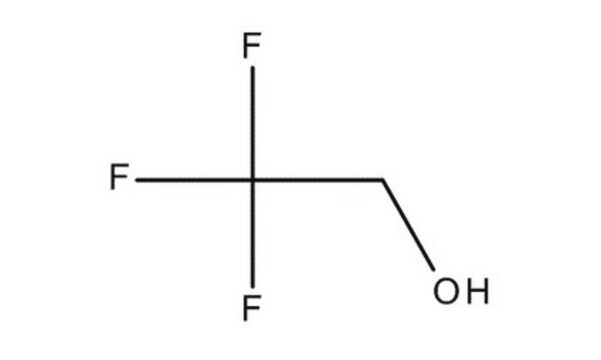426237
2,2,2,Trifluoroethanol-OD
99 atom % D
Synonym(s):
2,2,2-Trifluoroethan(ol-d), Trifluoroethyl alcohol-OD
About This Item
Recommended Products
isotopic purity
99 atom % D
assay
99% (CP)
form
liquid
technique(s)
NMR: suitable
refractive index
n20/D 1.3 (lit.)
bp
77-80 °C (lit.)
mp
−44 °C (lit.)
density
1.387 g/mL at 25 °C (lit.)
mass shift
M+1
SMILES string
[2H]OCC(F)(F)F
InChI
1S/C2H3F3O/c3-2(4,5)1-6/h6H,1H2/i6D
InChI key
RHQDFWAXVIIEBN-RAMDWTOOSA-N
Related Categories
General description
Recommended products
signalword
Danger
Hazard Classifications
Acute Tox. 3 Inhalation - Acute Tox. 3 Oral - Eye Dam. 1 - Flam. Liq. 3 - Repr. 1B - STOT RE 2 Inhalation
target_organs
Blood
Storage Class
3 - Flammable liquids
wgk_germany
WGK 1
flash_point_f
84.2 °F - closed cup
flash_point_c
29 °C - closed cup
Certificates of Analysis (COA)
Search for Certificates of Analysis (COA) by entering the products Lot/Batch Number. Lot and Batch Numbers can be found on a product’s label following the words ‘Lot’ or ‘Batch’.
Already Own This Product?
Find documentation for the products that you have recently purchased in the Document Library.
Our team of scientists has experience in all areas of research including Life Science, Material Science, Chemical Synthesis, Chromatography, Analytical and many others.
Contact Technical Service











